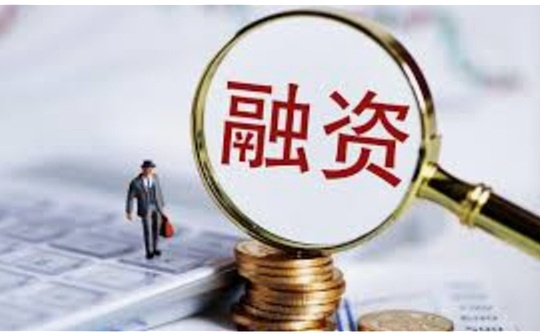Arthur Hayes Bitcoin 2025 Conference Speech: BTC’s Road to $1 million

Reprinted from chaincatcher
06/01/2025·2DOriginal title: Arthur Hayes ' keynote speech "It's F**king Maths" on
Bitcoin 2025
Translated by: Golden Finance
The mission of the U.S. Treasury Secretary
The new U.S. Treasury Secretary is Bessent, who has worked with George Soros, helping to break several different sovereign currency pegs. He obviously knows very well what needs to happen to succeed economically in the United States in the face of all these problems.

This is a photo of Bessent doing sales demonstrations, and I believe some of you have seen the movie "Glengarry Glenn Ross" and that iconic scene, when... I forgot the name of the actor, he stood there and told the salesperson ABC -Always Be Closing. So what is Scott Becente’s job? So every time you see him on TV, imagine he is a used car salesman who is selling you something. What is he selling to you? Bonds. His job is to sell bonds because his boss, the U.S. government, needs to raise funds for himself.

So why are bonds a bad investment? The yellow part here is a chart of total U.S. Treasury bonds, starting in 2017. You can see that it is based on 100 and the debt supply has risen by about 80%. I then compared this index with the TLT (ETF that tracks long-term Treasury bonds) divided by the Nasdaq 100 index. So if the chart goes down, it means that Nasdaq outperforms the bonds. From 2017 to now, Nasdaq outperformed bonds by about 80%. So, yes, you might make money by holding coupons on bonds, but if you put money into the stock market, you'll make 80% more.
Let's look at the same chart contrasting with gold. Similar situations. If you don't hold Treasuries but buy gold, you'll perform about 80%. Obviously this is not a gold or stock meeting. We're talking about Bitcoin here. So how does it perform compared to Bitcoin? That's even more eye-catching. By buying Bitcoin instead of buying bonds, you will also outperform your bonds.
So while there are a lot of investment professionals who will come forward and tell you, you know, I think the bond market will perform well in the next year or two, and that kind of thing, that might be true. You may really make money by holding bonds, but by holding other things you make more money. The goal of investing is to maximize the money you make in the current environment, and holding government bonds is not a good deal.
Now, this is obviously back to my message that this job at Becente is very difficult, because as more and more investors read these charts and understand that if they continue to hold government bonds, they will perform far less than what they could have earned for themselves and their clients, then more government actions are needed to ensure that the U.S. government can finance itself. So it is obvious that after the Trump administration came to power, they talked about the spending issue of the US government.
U.S. debt deficit and inflation
Here is a chart from the Peterson Institute, the U.S. fiscal year begins in October. We can see that as of March this year, despite a lot of effort and rhetoric on controlling excessive spending in the U.S. government, in fiscal 2025, our spending was already higher than in fiscal 2024, which was a record deficit.
It’s obvious in the media that we’ve been talking a lot about how some people — we’ll mention that person later — will control government spending by eliminating fraud and abuse. We discussed for a while, and then the protagonist of this effort, the Doge "pioneer" Musk, disappeared. We haven't heard from him for a while because it's a bad political trick. Every dollar the government spends goes into someone else's pocket. If you are going to stand up and say we are going to cut the trillions of dollars in deficit, it will obviously have an adverse impact on many people and businesses. We see negative reactions from the media and individuals to this. Ultimately, I think politicians realize, hey, this is not a good political strategy. Let's recall our "attack dog" and let him fade out of people's sight and run his private company.
But that means, if they can't meaningfully cut the deficit, how do you balance the accounts? Recently, Scott Becente began to tour the media about how he focused on growth. He pursues growth with all his might. So, what does that mean if you face a huge deficit? This means you need to make nominal GDP growth exceed your interest cost, which is very difficult unless you intend to increase the amount of credit in the economy.
Many of the people here are Americans or have been in North America for a long time. I lived in Greater China most of my adult life. When you live in China, you will understand that GDP or growth is just how much credit you are willing to inject into the economy. If we want to understand what the Trump administration—I think any administration will do in the face of these mathematical facts—we must understand that this economy depends on credit. So, if you are willing to inject more credit into the system, you can achieve whatever growth target you want. So if Becente said they want 6% or 7% nominal GDP growth, good, how much credit are you going to create? We want to know how much credit they intend to create, because this is ultimately what causes Bitcoin to outperform every other asset in fiat currency.
So, how do we surpass the 7% sustained deficit? What can they do? Normally, the authorities will blow up another financial bubble. Maybe that's Bitcoin and cryptocurrencies. Politicians take a very relaxed stance and say, “Hey, we want the siblings in the currency circle to be very rich, pay capital gains taxes, you know, consume heavily and improve economic performance.” They can encourage the banking system to lend to the real economy, which I wrote a few months ago called “QE for poor people”. Basically, if the banking system is not doing financial engineering, it uses its balance sheet to lend to ordinary companies, it creates jobs and economic growth.
Now, the problem with these two things is that there is inflation. Inflation is necessary to balance the balance sheet. I know this is an unpopular word in politics and economics, but inflation is necessary for the government to bear its huge debt. So we will face inflation, and obviously everyone here understands that Bitcoin is the best hedge for this. But we need to spread this information to the whole world.
Bitcoin’s Road to $1 million
Finally, I want to talk about a few things. Bitcoin’s path to $1 million, I believe there are three main aspects.
First of all, capital controls and tariffs. I recently wrote an article that delves into what I think is bad political means because they encourage commodity inflation and empty shelves that the average American doesn't like. But you can achieve the same economic rebalancing goal by using capital controls. So it starts to see some marginal economists — soon to become mainstream — talking about how they can cancel certain tax benefits foreigners enjoy in investing in the United States and redistribute that portion of the income to voters or use them to buy Treasury bonds for a specific period.
The second thing is the exemption from the bank supplemental leverage ratio (SLR), which I will explain in detail later. Scott Becent has talked about this in many interviews, and he has even recently stepped up his rhetoric in interviews with Bloomberg and Fox News, speaking of his belief that the ratio will be exempted this summer, just like the big banks can buy Treasury bonds during the COVID-19 pandemic.
Finally, one area of increasing concern is Fanny Mae and Freddie Mac, two government-backed businesses (GSEs), which will be able to inject large amounts of money into the mortgage market if allowed again.
Let’s take a look at this “three horses”. "Foreigners must pay" is a good political strategy. If you are going to say to voters, "I'm going to give you something," it would be better if someone else pays it. This is how politics operates around the world. Back in 1984, because the U.S. government had another problem, the same question: How do we get people to buy our debt? At that time, the yield on the 30-year Treasury bond was about 12%. They said, "Hey, why don't we exempt foreign bondholders from withholding taxes?" Now, if you're an American, all the interest you get from holding Treasury bonds is taxed at a certain tax rate, I think it's about 20% to 30%. And now, if you are a foreigner, you don't need to pay this tax.
So now there is discussion to cancel this exemption to achieve several purposes. First, by essentially taxing the income earned by foreigners, this could raise more than a trillion dollars in a decade. Now, obviously, if you are taxed, you may not want to hold Treasury bonds. So one idea is whether we can set a very low tax rate to hold long-term Treasuries—those are things that Becente has trouble selling—and imposes a high tax on Treasuries (short-term Treasuries)—those are cash-like tools you might have in your money market account. Everyone wants this, everyone wants a high-yield cash account. So let's punish you for holding short-term government bonds, but let you hold long-term government bonds. This is a mild form of yield curve control. How do we get demand for long-term bonds from foreigners? Just change the tax rate.
Now, the ultimate question is who will replace foreigners as marginal holders of debt. Obviously, this means they will print money to make up for the money lost because foreigners do not invest in these debts.
Another thing: the bank bond purchase craze. Supplementary Leverage (SLR), be sure to remember this if you don’t remember anything about the content of this speech. This is a way banks can buy bonds with unlimited leverage. There is something called Basel III (Basel 3), a very complex rule made after the global financial crisis, which does a wise thing. It said, hey, bank, you don't have much capital, why don't we let you have more capital? So if I hold a bond, I have to invest some of my own equity capital. This makes a lot of sense. This means that banks in the United States will encounter restrictions on the amount of U.S. Treasury bonds purchased. Remember, Becent needs to sell two trillion or more bonds a year, and he needs to make sure someone can buy them. So if I cancel this exemption, commercial banks are allowed to purchase Treasury bonds with unlimited leverage. When they can do so, their profits soar because the interest rates they pay to commercial deposits are very low. Apparently, Jaime Dimon with a smile on his face would really like this to happen. He has said on several occasions that he believes the banking system needs the exemption. As I often say, Jamie Dimon gets whatever he wants.
Another thing is that stablecoins are obviously a very hot topic recently. If you combine stablecoins or interest-free dollar stablecoins issued by Bank of America on the market with SLR exemptions, they basically become like Tether. They do not allow any fees to those who invest in these stablecoins and use them for transfers, and they can then put all of this money into U.S. Treasury bonds and there is no capital requirement. This is basically unlimited profit. So I expect that if this exemption passes - I think it will - you will see big U.S. banks very consistently working to issue "orange stablecoins" (referring to stablecoins associated with Bitcoin or some Bitcoin-backed bank) because that's one way they earn a lot of net interest income.
This is a post by Trump on Truth Social about Fannie Mae and Freddie Mae.
Basically, these are the organizations that issued mortgage loans before the 2008 financial crisis. They were once very profitable. Now, what happens when you release Fannie Mae and Freddie Mae? Basically, you free them from the state of government takeover. This deal has been discussed for nearly two years. If you buy at one dollar, these companies may now be trading at $11. But you free them from the takeover state, they are allowed to use their equity capital to issue more debt with implicit government guarantees and leverage them 33 times. They can then buy up to $5 trillion in mortgages. If you allow both organizations to resume normal operations, this will be $5 trillion in liquidity entering the market.
Simple calculation
Where did I come up with the idea that Bitcoin could reach $1 million?
- If we consider “quantitative easing for the poor” – banks provide more loans to the real economy – I estimate that up to $3 trillion in bank credit could be generated from now until 2028. The statistics to be watched are the "Other Deposits and Liabilities" items on the Fed's weekly balance sheet, where we'll see that happen.
- If banks are allowed to buy Treasury bonds, it is estimated that $900 billion of foreign demand could disappear. This must be compensated by commercial banks, who can now purchase these Treasuries with unlimited leverage.
- Finally, let’s release Fannie Mae and Freddie Mae to bring $5 trillion in liquidity to the market.
- This will bring us close to $9 trillion in printing money from now until 2028.
Let's look at this in the background. During the COVID-19 pandemic, the U.S. stimulus package and all assistance to the financial sector totaled about $4 trillion. From its March 2020 low to $70,000 in November 2021, Bitcoin rose about 10 times.
Remember, prices are determined by margins. What matters is the marginal price, not the entire stock. So if we reduce bitcoin on the trading platform due to ETF demand and we print twice as much money as during the COVID-19 pandemic from now until 2028, it would be easy for Bitcoin to reach $1 million.


 jinse
jinse

